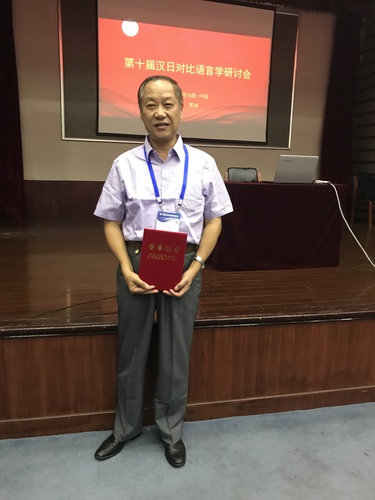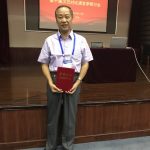 A UM scholar receives the Development Contribution Award for his contributions to research on Chinese-Japanese contrastive linguistics
A UM scholar receives the Development Contribution Award for his contributions to research on Chinese-Japanese contrastive linguistics
Prof Chen Fangze, associate professor from the Centre for Japanese Studies, Faculty of Arts and Humanities, University of Macau (UM), recently received the Development Contribution Award from the International Association of Chinese-Japanese Contrastive Linguistics (IACJCL) at the Tenth Symposium on Chinese-Japanese Contrastive Linguistics held at Suzhou University, for his outstanding contributions to research on Chinese-Japanese contrastive linguistics and the development of the association.
A founding member of the IACJCL, Prof Chen has served as the director, standing director, and editor of the associations’ journal, as well as the vice chairmen of its academic committee. Since the founding of the association, Prof Chen and his research collaborators have made research presentations at each symposium, which has enhanced academic exchange between the Centre for Japanese Studies and other universities, increased UM’s impact in this discipline, and promoted the development of research on Chinese-Japanese contrastive linguistics.
Founded in 2009, the IACJCL is a regional international academic organization. All members and confreres join the association in their individual capacities. Currently there are more than 600 members from mainland China, Japan, South Korea, Hong Kong, and Macao. The IACJCL holds an international academic symposium every year. This is the tenth year that the association has held this event.


